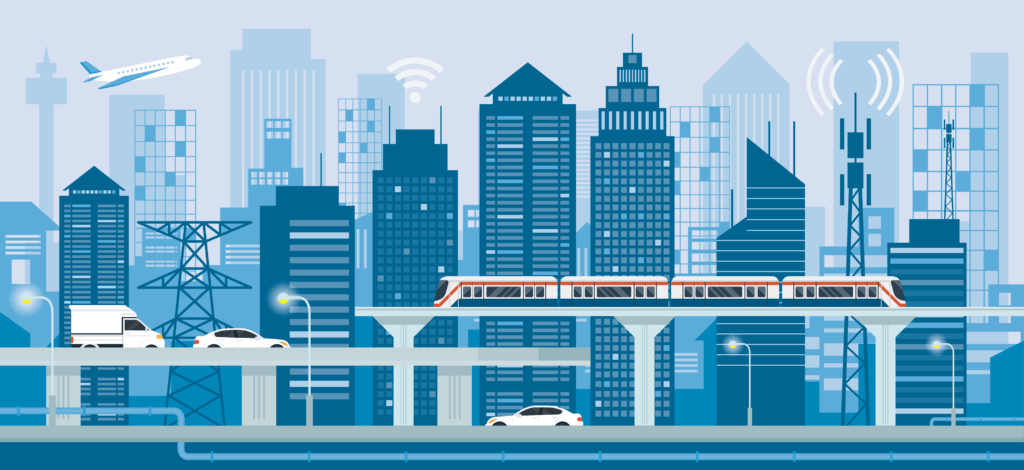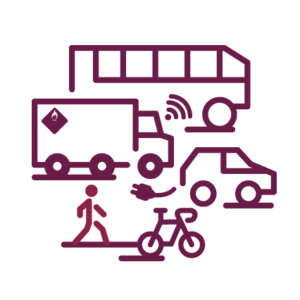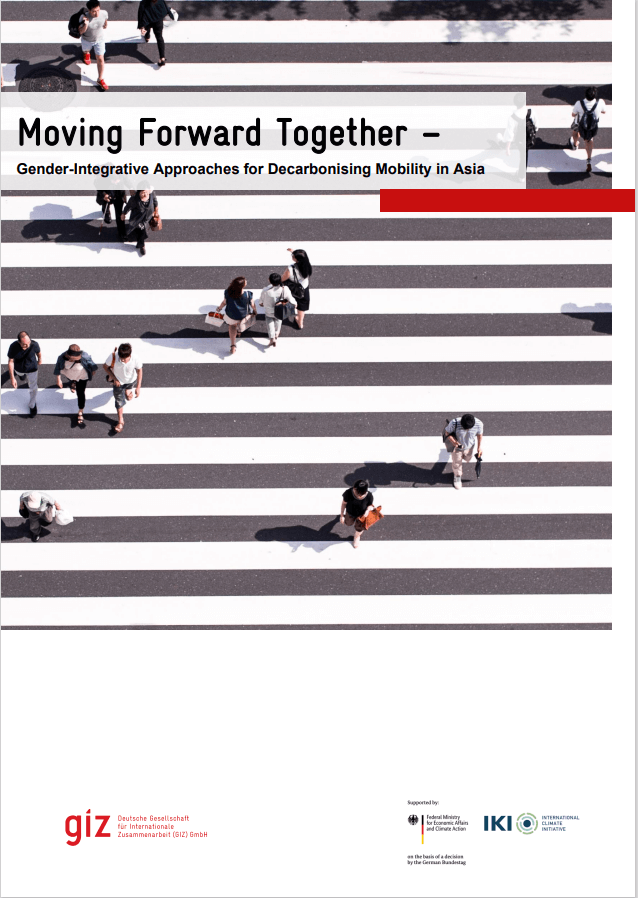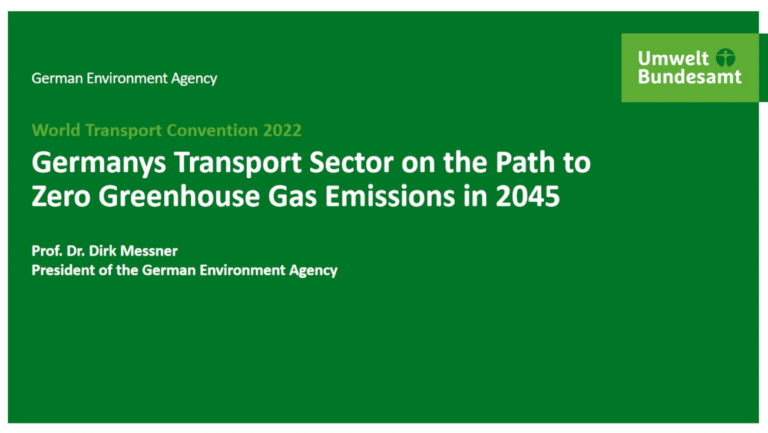The EU Transport and Mobility Update is a format that aims to provide news on the latest policies, events and trends in the European transport and mobility sector. Compiled by GIZ, it provides insights in technology, sustainability and innovation by highlighting recent articles. Ultimately, this format is meant to foster exchange and dialogue on advancements as well as best practices in the European transport and mobility sector.
All content has been prepared with the greatest possible care and is provided in good faith. The assumptions, views, and opinions expressed in this article do not necessarily reflect the official policy or position of Deutsche Gesellschaft für Internationale Zusammenarbeit (GIZ) GmbH.
–
News
03.11.2021
Electric Vehicle Registrations in Germany Reach Their New Highest Ever Share
In October, 178,700 new passenger cars were registered in Germany, 35 percent less than in the same month last year. Meanwhile new electric registrations rose by 13 percent to 54,400 units in October, making the total share in new registrations 30.4 percent. This total significantly exceeded the previous high from September of this year. To reach this electric vehicle registration highpoint, new registrations of purely battery-electric passenger cars (BEVs) increased by 32 percent, while those of plug-in hybrids (PHEVs) fell by 5 percent.
Source (German): Pkw-Neuzulassungen: neuer Höchstwert beim Elektroanteil | VDA
News
10.11.2021
COP26: 2022 Action Plan and Multi-Stakeholder Commitments for Shifting to 100 Percent Zero Emission Vehicles by 2040 Globally
Following the dedicated “transport thematic day” on November 10th, two groups with large degrees of influence on the automotive industry declared their commitments for achieving the goals of the Paris Agreement. Firstly, the Zero Emission Vehicles (ZEV) Transition Council – a multinational platform which represents automotive markets totaling over half the world’s car sales – presented an action plan for 2022, focused on charging infrastructure, a second-hand market for ZEV and stronger support for developing nations. Secondly, a hugely diverse group of representatives from governments, businesses and other organisations have committed to sales of only ZEV by 2040 globally and by 2035 in leading markets, by making ZEV “accessible, affordable and sustainable” worldwide by 2030. They also recognized the necessity of a “wider system transformation, including support for active travel, public and shared transport, as well as addressing the full value chain impacts from vehicle production, use and disposal.”. The full list of signatories to the declaration can be found at the link provided below.
News
10.11.2021
COP26: Clydebank Declaration for Green Shipping Corridors
A declaration was prepared announcing the establishment of at least six green shipping corridors until the middle of the decade, meaning six zero-emission maritime routes between two or more ports controlled or regulated by the declaration’s signatories. Importantly though, not all vessels traversing in these corridors will be required to be ZEV or participate in the partnership. It is aspired to then scale these measures in the years following their initial deployment. For the fast implementation of such green shipping corridors and an overall shift to clean shipping, the signatories recognised that clean maritime fuels, ZEV and the global availability of supporting landside infrastructure are imperative. Additionally, the signatories want to explore actions to address barriers to green corridors’ formation, for example through regulatory frameworks, incentives, information sharing or infrastructure.
Report
18.11.2021
Road safety: European Commission publishes 2020 figures on road fatalities
The European Commission has published data on road fatalities in the EU in 2020. This publication also includes a breakdown of 2019 data on road fatalities as sorted by road user and (other) ‘main vehicle’ involved in the crash.
Project
24.11.2021
German Federal Ministry of Transport and Digital Infrastructure funds AI mobility project from Fulda with nearly 11 million euros
In the Campus FreeCity project, a real laboratory is being set up to explore the potential of a networked fleet of modular robot vehicles. “CityBot” vehicle prototypes for transporting people and goods will be further developed into an innovative, comprehensive mobility concept. Using artificial intelligence methods, automated driving functions, networking and data exchange, and modern human-machine interfaces, the aim is to develop a highly automated, intelligent overall system that can reduce emissions and cut land consumption through optimal coordination and utilization. Accompanying user studies will investigate acceptance factors and communication modes of the concept.
Source (German): BMVI – BMVI fördert KI-Mobilitätsprojekt aus Fulda mit knapp 11 Millionen Euro
News
25.11.2021
New German government’s coalition agreement: Transport and mobility takeaways
On November 24th, the much anticipated German preliminary coalition agreement was published by the SPD, the Greens, and the FDP for ratification by the parties. The agreement sets the direction for mobility and transport in Germany.
Rail: The next German government plans to invest considerably more in rail than road. Targets include increasing rail’s share of freight transport from 19% to 25% by 2030, doubling passenger numbers and electrifying 75% of the country’s rail network, up from the current 60%. Creation of a national regular interval timetable is also seen as a priority.
Cars: The three parties agreed to step by step end the fossil age, among other things by – with a focus on technology openness – leaving behind the internal combustion engine. By 2030, 15 million electric passenger cars should drive on German roads.
New mobility: A mobility data law ensuring free accessibility of transport data shall be developed.
Cycling and walking: The national cycling plan shall be implemented and further developed and a national strategy to promote walking shall be developed.
Battery technology: Germany shall become a centre for research, production and recycling of battery cells.
Aviation: The new government hopes to become a ‘leader in CO2-neutral aviation’. It will push for EU legislation to establish a minimum price for plane tickets within the bloc.
Sources: New German government to prioritise rail investment over road | International Railway Journal (railjournal.com)
More updates can be found here:
UPDATES IN THE EU TRANSPORT AND MOBILITY SECTOR [OCTOBER 2021]
UPDATES IN THE EU TRANSPORT AND MOBILITY SECTOR [DECEMBER 2021]
UPDATES IN THE EU TRANSPORT AND MOBILITY SECTOR [JANUARY & FEBRUARY 2022]





